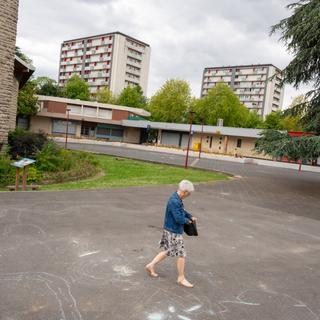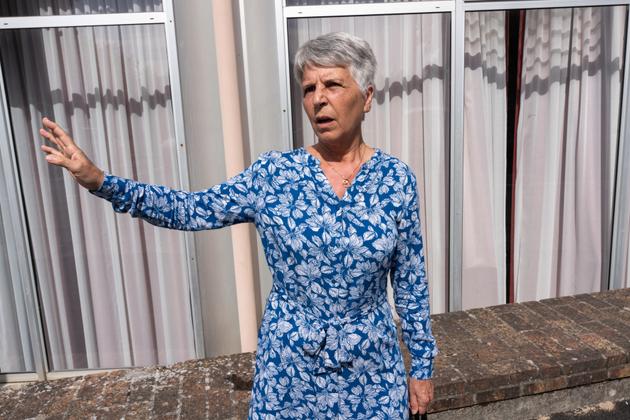


French elections: In Val-d'Oise, it's France against France
FeatureIn the 9th constituency of this department west of Paris, working-class neighborhoods and rural communities voted at opposite ends of the spectrum. The second round will pit the incumbent radical-left La France Insoumise MP against the far right's candidate.
Values against values. Words against words. France against France. The communes are next door to each other and the votes are on opposite sides of the spectrum, like a concentration of the electoral and political clash underway since the June 9 dissolution. In the 9th constituency of Val-d'Oise (west of Paris), Gonesse and Roissy-en-France share the same territory, on the edge of the Ile-de-France's rural areas, but tell two stories, two societies, two visions.
The first, in a popular urban area, put the outgoing La France Insoumise (LFI, radical left) MP in the lead with almost 50% of the vote in the first round of the snap elections on Sunday, June 30. The second, a rural, tourist area, buoyed by the activity of the international airport, put the far-right Rassemblement National-backed candidate well ahead, with over 43% of the vote.
This scenario is mirrored across the constituency, with working-class towns (Goussainville, Louvres) on the left, pitted against rural communes largely favorable to the far right. The second round looks set to be a close one on Sunday, July 7, with incumbent MP Arnaud Le Gall (LFI, 36.5%) facing Agnès Marion (RN, ex-Reconquête!, 32.7%) and voters from Les Républicains (LR, right) and the Ensemble presidential coalition in a position of arbitrage.
'I can't stand them'
RN voters in Roissy-en-France no longer have any taboo about talking about immigration and their abysmal, visceral rejection of sensitive neighborhoods, suburbs that are much further away in their representation of the world than the destinations to which Roissy planes take off. Their words are brutal, expressing much more than an electoral choice, an impossibility in their eyes of living together.
Liliane Littière, for example, 66, a retired saleswoman who has lived in Roissy for forty years, slipped in an RN ballot paper and shared some of her views as she left the polling station, "I don't recognize France anymore. The Front Populaire will bring in even more immigrants," she says, adding, "I have three neighbors who have left, replaced by three Muslim couples."

Maria Teresa, 76, who doesn't want to share her last name, says what is at stake for her is existential. "Even on all fours, I would have come to vote RN." Her father, a bricklayer, and her mother, a homemaker, had arrived from Italy in the 1950s. "You have to be respectful, they used to tell us!" Her words become vulgar as she gets more angry.
"Like Trump, who talks to Americans about America, we need to give France back to the French," she explains, borrowing an old slogan from the Front National's founder Jean-Marie Le Pen (whose party was the forerunner of the RN), which has remained an indelible mark on its opponents and political capital for its supporters. As she herself admits, the hatred is palpable. "I have a family of Moroccans across the street from me. I can't stand them. I can't stand them looking at me like I'm an old lady, like they feel superior." And again: "We're being eaten." Or: "We can't open our mouths anymore."
You have 54.98% of this article left to read. The rest is for subscribers only.
